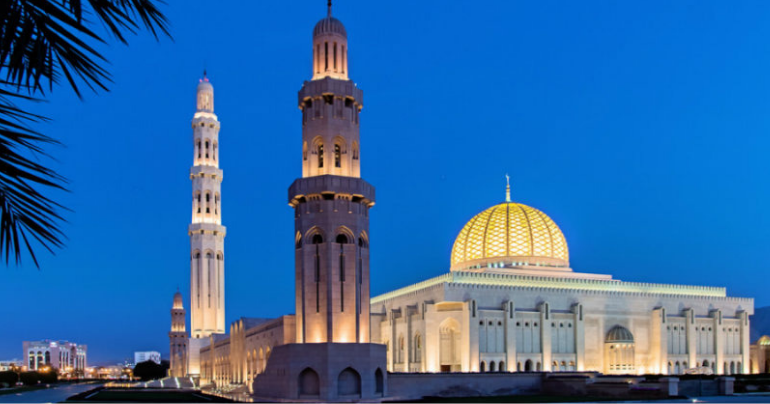Must Knows Before Moving to Oman
In 2010, the United Nations Development Programme singled out Oman (from 135 countries) as the world's most improved country over the past four decades. Below, we explore some things that you should know before moving to Oman.
Understand Muhfaazahs and Wilyats
By moving to Oman, you will relocate to the southeast corner of the Arabian Peninsula, between Yemen and the UAE. The country also shares an inland border with Saudi Arabia that starts somewhere in the dunes of the Rub' al Khali which is the largest sand desert in the world.
Oman is divided into 11 governorates (muhafazah), which consist of about 60 districts (wilyat). Most expatriates settle in the capital of Muscat, which forms a governorate of its own. Moreover, there’s a large foreign boom in Salalah, in the southernmost province of Dhofar.
Be open mind minded and get involved
Oman is a beautiful country, beyond exploring the country’s fascinating landscape there are lots of activities you can get involved in to help you meet people outside of work. This is especially relevant if you’re moving to Oman for your partner’s job. Diversifying the country’s economy through tourism is a big priority for the Omani government, so be assured that you’ll never run out of things to do!
Expatriates living or visiting Oman, can enjoy an open-air and adventurous lifestyle. Some of the world’s best scuba diving experiences can be found in Oman. Other popular activities include stand up paddle boarding, kitesurfing, wakeboarding, sand-skiing, beach camping, off road driving in the desert or on the mountains, abseiling and climbing, discovering ancient castles and forts, exploring canyon’s and swimming in the beautiful clear blue waters.
Expatriates relocating to Oman will also enjoy the openness and tolerance of its society and the determinedly friendly nature of its people. With such a large expatriate population, Omani locals are accustomed to foreigners and treat them not with suspicion or hostility, but with curiosity and a willingness to engage across significant cultural differences.
Examples of this open-mindedness include the serving of alcohol in restaurants and clubs often frequented by foreigners and more importantly, the relatively liberal attitudes held towards women and women's rights. In Oman, women play a far more active and visible role in society than in other Middle Eastern countries with female expats often reporting how comfortable and respected they feel in their vocational pursuits.
Public displays of affection
Although Oman is one of the most progressive countries in the Gulf, it is still an Islamic and Muslim state and expatriates should adapt their behaviour to ensure that they remain in the good graces of Omani locals. Expats are encouraged to view this not as a hardship, but as an opportunity to learn about a culture different to their own and to develop their cultural sensitivity and interpersonal skills.
Public displays of affection are very much frowned upon in Oman, even for a married couple, which includes holding hands in public. For simplicity, it is best to keep affectionate displays for the sanctity of your own home.
Dress Code
When out and about, women should dress very conservatively and if visiting a mosque or an Omani friends home, then all the body must be covered up. There is no obligation for non-Muslims to wear a veil and women are able to work and generally go out unaccompanied.
Working Week
A traditional working week runs from Sunday through to Thursday, leaving Friday and Saturday as your weekend. This is largely due to Friday being a holy Islamic day when Jumu’ah prayers take place. Oman’s working week is also largely observed in neighbouring countries Saudi Arabia and Yemen as well as Qatar.
Insh’allah (“God willing”)
You’ll get used to this phrase very quickly in Oman, which in Arabic means ‘god willing’.
Prepare for tropical temperatures
Anyone moving to Oman should be prepared for the rather extreme climate. In Muscat, the subtropical temperatures range from 22°C (71°F) to 25°C (77°F) in winter and reach up to 40°C (104°F) in the humid summer months.
While the rest of the country mostly has a desert climate, expats moving to Oman’s south are in for a surprise as Dhofar is a tropical region that is influenced strongly by the rain season. After the heavy downpours, the province turns into a green oasis in full bloom - a wonder of nature that attracts visitors from around the world. Pictured below: Bandar Jissah Beach, Gulf of Oman.

There’s more to Oman than just Muscat
Muscat’s growing infrastructure, ancient culture and combination of coastline and mountains instantly makes the capital city a favourite with tourists and international organisations. However, the Sultanate has plenty more to offer, from stunning secluded beaches to mountainous peaks where settlements and communities still reside.
A drive down the coast of the Arabian Sea from Muscat is Sur, a quiet coastal town which is the alleged home of the legendary Sinbad the sailor. The ancient, winding cobbled streets led down to the Dhow Shipyards where the boats that famously trawled the Red Sea are still built today.
Inland from Muscat are the Western Hajar Mountains, which stand at 3,010 metres high. You can take a safari along the roads and up towards the peak where 400-year-old mud houses that are still occupied can be found. Hidden in the mountainside’s crevasse is Misfah al Abreen, a quiet garden farmed by local herders.
tag: moving-to-oman , expats , culture
Share This Post






